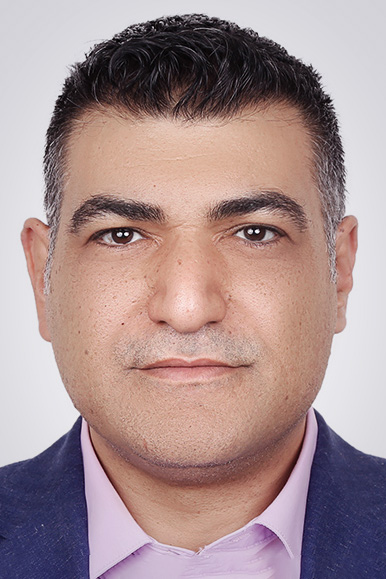

Cybersecurity |
Sponsored by |

|
 Generative AI has turned brand impersonation from a nuisance into an industrial-scale threat, eroding trust. As ICANN's 2026 round approaches, DotBrand domains promise a structural fix to spoofing that strategies failed to deliver in 2012.
Generative AI has turned brand impersonation from a nuisance into an industrial-scale threat, eroding trust. As ICANN's 2026 round approaches, DotBrand domains promise a structural fix to spoofing that strategies failed to deliver in 2012.
 At Munich's twin security gatherings, leaders warned that cyber conflict, transatlantic rifts and weaponised AI are pushing the rules-based order into a perilous transition, where deterrence falters, norms erode and digital sovereignty trumps multistakeholder ideals.
At Munich's twin security gatherings, leaders warned that cyber conflict, transatlantic rifts and weaponised AI are pushing the rules-based order into a perilous transition, where deterrence falters, norms erode and digital sovereignty trumps multistakeholder ideals.
 A six year study of Global 2000 firms finds progress on email authentication but worrying gaps elsewhere. Despite rising DMARC adoption, falling DNS redundancy and uneven regional uptake leave companies exposed to domain based attacks.
A six year study of Global 2000 firms finds progress on email authentication but worrying gaps elsewhere. Despite rising DMARC adoption, falling DNS redundancy and uneven regional uptake leave companies exposed to domain based attacks.
 ICANN invites proposals for its DNSSEC and Security Workshop at the ICANN85 Community Forum in March 2026, offering a platform for global experts to share insights on DNS, routing security, and emerging threats.
ICANN invites proposals for its DNSSEC and Security Workshop at the ICANN85 Community Forum in March 2026, offering a platform for global experts to share insights on DNS, routing security, and emerging threats.
 A 2026 outlook charts Internet governance between fear and hope, tracking cyber conflict, digital trade and taxation, shrinking rights, and global AI rivalry, while asking whether multistakeholder cooperation can still steer the network toward stability.
A 2026 outlook charts Internet governance between fear and hope, tracking cyber conflict, digital trade and taxation, shrinking rights, and global AI rivalry, while asking whether multistakeholder cooperation can still steer the network toward stability.
 Internet governance is shifting from participatory forums to security-driven mandates. As authority accelerates ahead of legitimacy, technical systems face growing instability and operators absorb the risks of politically motivated control.
Internet governance is shifting from participatory forums to security-driven mandates. As authority accelerates ahead of legitimacy, technical systems face growing instability and operators absorb the risks of politically motivated control.
 As Internet governance fragments in 2026, authority shifts from open, multistakeholder forums to state-led security regimes, legal instruments, and alliance-based cooperation, challenging longstanding institutions and reshaping global norms through enforcement rather than consensus.
As Internet governance fragments in 2026, authority shifts from open, multistakeholder forums to state-led security regimes, legal instruments, and alliance-based cooperation, challenging longstanding institutions and reshaping global norms through enforcement rather than consensus.
 Despite deep geopolitical divides, the WSIS+20 outcome document was adopted by consensus, preserving a multistakeholder vision for the digital future while deferring controversial issues to a time more conducive to progress.
Despite deep geopolitical divides, the WSIS+20 outcome document was adopted by consensus, preserving a multistakeholder vision for the digital future while deferring controversial issues to a time more conducive to progress.
 The ICC's new cyber policy reframes Internet infrastructure as crucial to prosecuting atrocities, prompting DNS operators and network providers to grapple with emerging obligations around evidence, neutrality, and cooperation in international justice.
The ICC's new cyber policy reframes Internet infrastructure as crucial to prosecuting atrocities, prompting DNS operators and network providers to grapple with emerging obligations around evidence, neutrality, and cooperation in international justice.
 ICANN is finalising a policy to curb DNS abuse, aiming to preserve internet stability while defending freedom of expression. With regulatory pressure mounting, the multistakeholder model faces a critical test.
ICANN is finalising a policy to curb DNS abuse, aiming to preserve internet stability while defending freedom of expression. With regulatory pressure mounting, the multistakeholder model faces a critical test.